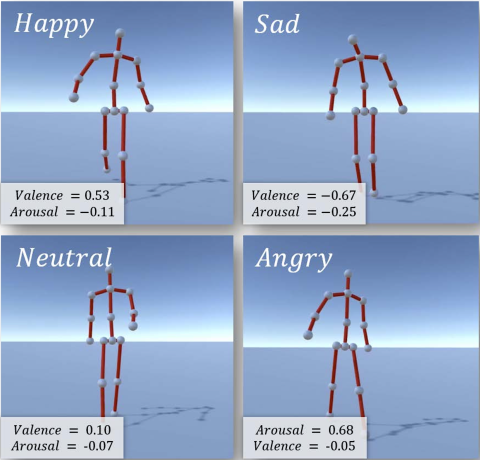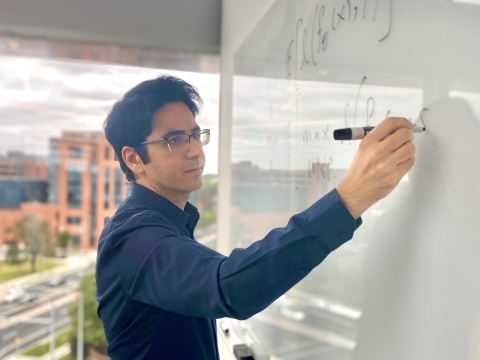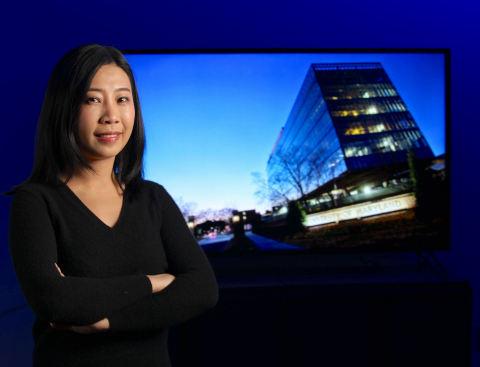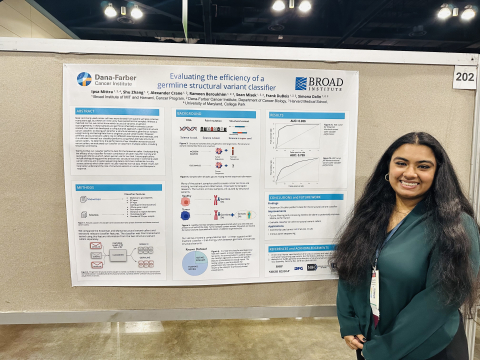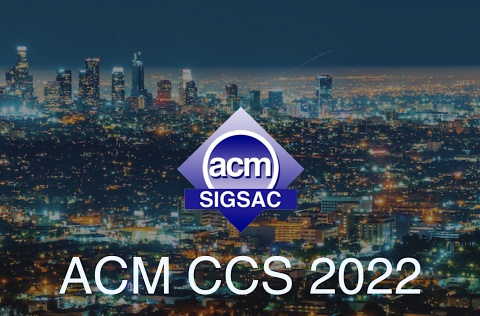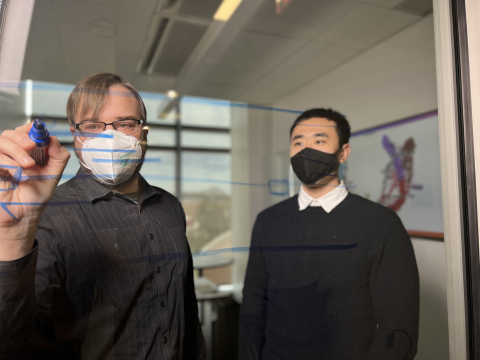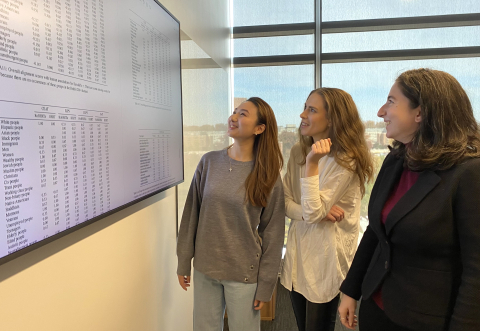Recent News & Accomplishments
2022
Course Prepares Students to Identify and Halt Internet Threats
The article is republished from Maryland Today. Students sign up for a class with the reasonable expectation that they’ll learn skills they can later practice in their daily lives. In one popular course at the University of Maryland, however, they’re advised to leave some of those practices in the classroom. The one-credit “Intro to Ethical Hacking” teaches undergraduates to break into websites as part of their exploration into the world of cybersecurity—not so they can be online villains, but so they can develop the knowledge needed to defend against malicious hackers. Cybercrime is a severe... read more
Researchers affiliated with the Geometric Algorithms for Modeling, Motion, and Animation (GAMMA) group at University of Maryland (UMD) have received a Best Paper Award for their work on a data-driven model and algorithm that can perceive the emotions of individuals based on their walking motion or gait. The paper, “ Learning Gait Emotions Using Affective and Deep Features ,” was presented at the 15th Annual Association for Computer Machinery (ACM) SIGGRAPH Conference on Motion, Interaction and Games ( MIG 2022 ), held from November 3–5 in Guanajuato, Mexico. It describes an innovative method... read more
A University of Maryland expert in machine learning has been awarded significant funding by two separate entities to tackle pressing problems in the field. Soheil Feizi , an assistant professor in the Department of Computer Science with an appointment in the University of Maryland Institute for Advanced Computer Studies , is principal investigator of two $300K awards. The first comes from the National Science Foundation’s Division of Computing and Communication, with the goal of understanding robustness via parsimonious structures. Although deep neural networks have led to significant... read more
A University of Maryland expert in machine learning and artificial intelligence (AI) has been selected for MIT Technology Review’s Asia Pacific “ Innovators Under 35 ,”an annual list recognizing 35 of the brightest young minds working in technology today. Furong Huang , an assistant professor in the Department of Computer Science with an appointment in the University of Maryland Institute for Advanced Computer Studies (UMIACS), was among the 35 entrepreneurs, humanitarians, inventors, and researchers honored for their groundbreaking work in biotech, AI, materials science, energy, computing... read more
Growing up with professors for parents, junior and computer science major Ipsa Mittra was immersed in academia from the get-go. She knew from a young age that she wanted to conduct research to make a difference. In high school, Mittra found her niche in computational biology through the STEM magnet program at Montgomery Blair High School in Silver Spring, Md. This spark of interest eventually led her to a prestigious summer fellowship this year conducting research at the Broad Institute and presenting at the 2022 National Diversity in STEM Conference. “SACNAS was my first time presenting my... read more
Researchers affiliated with the Maryland Cybersecurity Center (MC2) had six papers accepted to the 2022 Association for Computing Machinery Conference on Computer and Communications Security (ACM CCS), including two that received honorable mention awards. The annual conference brings together information security researchers, practitioners, developers and users from around the world. It was held this year from November 7–11 in Los Angeles. “It's great to see MC2 faculty, students and postdocs continue to produce strong work on so many important topics, from the web’s certificate... read more
This article is republished from CMNS website. University of Maryland Department of Computer Science Professor Rance Cleaveland has been named associate dean for research in the University of Maryland’s College of Computer, Mathematical, and Natural Sciences (CMNS), effective immediately. Cleaveland, who also has joint appointments in the University of Maryland Institute for Advanced Computer Studies and the Institute for Systems Research , joined UMD in 2005 and served as executive and scientific director of the Fraunhofer Center for Experimental Software Engineering from 2005 to 2014. From... read more
A University of Maryland expert on processing and organizing high-throughput genomics data has been awarded $350K from the Chan Zuckerberg Initiative (CZI), a philanthropic research organization launched in 2015 by Meta founder Mark Zuckerberg and his wife, Priscilla Chan. Rob Patro (left in photo), an associate professor of computer science with an appointment in the University of Maryland Institute for Advanced Computer Studies , will use the CZI funding to improve upon a “constellation” of interrelated tools his lab has developed to process genomic data. This includes alevin-fry , a... read more
If you’ve ever done a Google search or chatted with Amazon’s virtual assistant Alexa, you have seen natural language processing (NLP) at work. This form of artificial intelligence (AI) teaches machines human language, allowing them to interpret and generate text in much the same way a person would. While NLP models can convincingly mimic human language, they may also reflect human biases toward various social groups. With the goal of minimizing harm and enabling more equitable language in AI, University of Maryland computer science graduate student Yang “Trista” Cao (pictured left), and... read more
A team of researchers from the University of Maryland has received a best paper award for their work to make visual question answering (VQA) systems more effective for people with visual impairments. “ What’s Different between Visual Question Answering for Machine ‘Understanding’ Versus for Accessibility?” aims to improve VQA systems by nudging them toward a more human-centric model where the goal is to answer questions that are likely to be useful to potential blind and visually impaired users, as opposed to questions written to test how well a machine “understands” images. The paper was... read more

